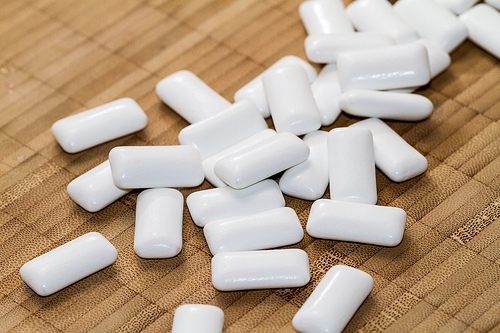
Xylitol is a naturally occurring sweetener found in tree bark, plants, fruits, and vegetables. The human body also produces it in small amounts. It looks and tastes like sugar, so as part of a health regimen, most people require no willpower to use it.
Xylitol is safe (approved by the World Health Organization) because only a small amount is needed for health benefits. With a glycemic index of seven, it is safe for diabetics. It has less than three calories per gram and 40% fewer calories than other carbohydrates. If eaten in extremely large amounts too quickly, it has a laxative effect in humans.
Tooth decay happens when bacteria in your mouth consume the sugars you eat. When you eat food that contains ordinary sugar, it gives energy to the bacteria on your teeth, allowing them to multiply and start making acids that destroy the enamel on the teeth.
Since xylitol is a natural sweetener derived from the fibrous parts of plants, it does not break down like sugar, so it helps maintain a neutral pH level in the mouth. Xylitol also prevents bacteria from sticking to the teeth because they are unable to digest it. That is how it protects the teeth from cavities.
With xylitol, the acid attack is diminished. With less bacteria and acid, your teeth stay healthier. The frequency of xylitol ingestion is important: aim for five grams a day, or one gram every three hours.
Studies of xylitol use as either a sugar substitute or a small dietary addition have demonstrated a dramatic reduction in new cavities. It has also stopped and even reversed some existing cavities. This effect is long lasting and possibly permanent. Low cavity rates persist even years after the trials have been completed.
Xylitol needs to be one of the first ingredients in a product to be effective. It is convenient and easy to use. You can find it in health food stores and specialty grocery stores. Xylitol can be delivered to your teeth in chewing gum, tablets, or even candy and mints.
It also comes in toothpaste, mouth rinse, baby oral wipes, gel and pacifiers, nasal wash, dry mouth spray, a granulated form for cooking, granulated packets to add to drinks, and commercially prepared foods. It can replace sugar on a one-to-one ratio.
Sweet rewards in xylitol are good for the body and the teeth! If you have specific questions please feel free to contact Drs. Phillip and Greg Wolkstein. We look forward to seeing you soon!

